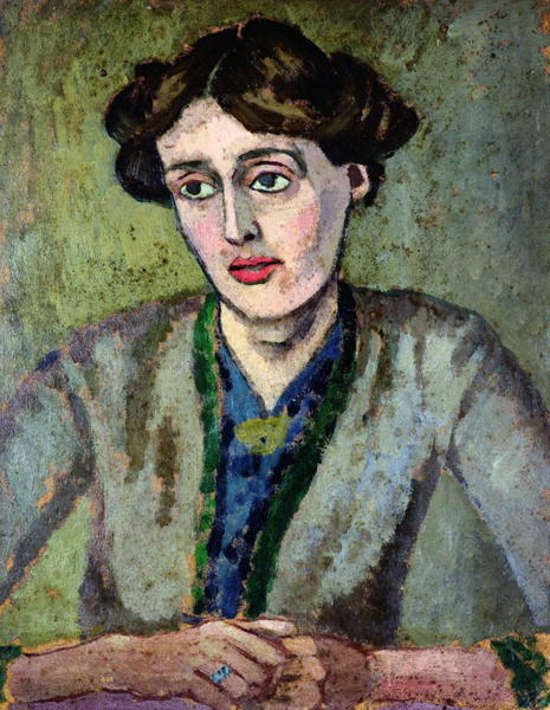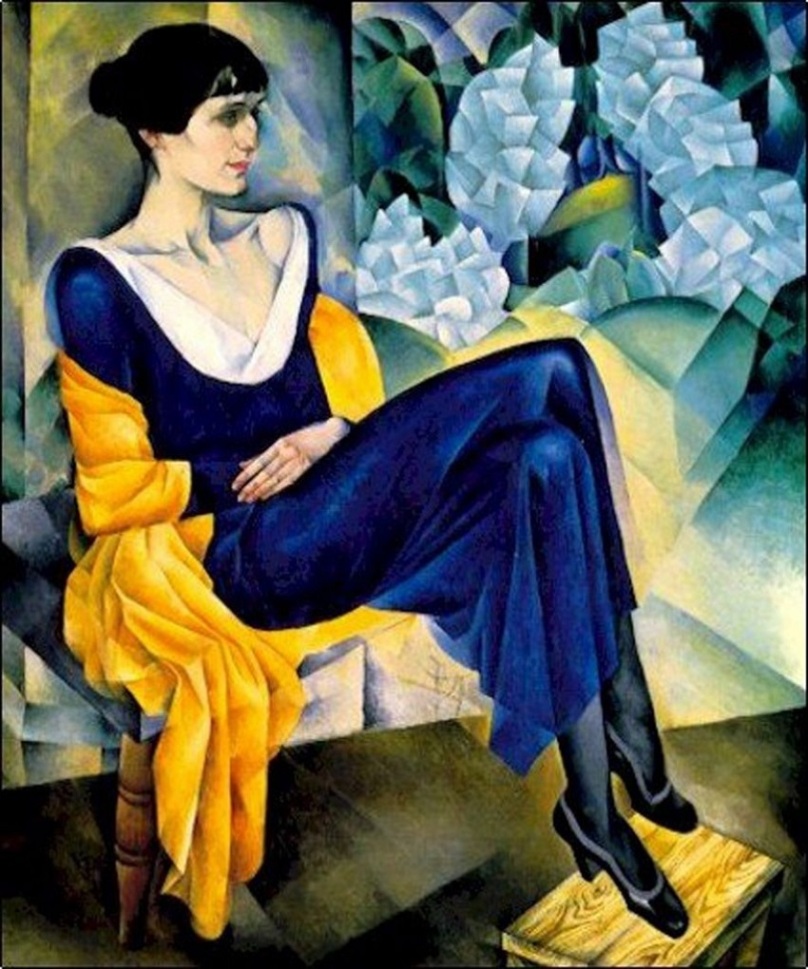Virginia Woolf (25 January 1882, London, UK – 28 March 1941, Lewes, Sussex, UK)
Occupation: Novelist, essayist, publisher, critic
Nationality: English
Literary movement: Modernism

Portrait of Virginia Woolf by Roger Fry, c.1917
A room of one’s own by Virginia Woolf (excerpt)
But, you may say, we asked you to speak about women and fiction—what, has that got to do with a room of one’s own? I will try to explain. When you asked me to speak about women and fiction I sat down on the banks of a river and began to wonder what the words meant. They might mean simply a few remarks about Fanny Burney; a few more about Jane Austen; a tribute to the Brontës and a sketch of Haworth Parsonage under snow; some witticisms if possible about Miss Mitford; a respectful allusion to George Eliot; a reference to Mrs Gaskell and one would have done. But at second sight the words seemed not so simple. The title women and fiction might mean, and you may have meant it to mean, women and what they are like, or it might mean women and the fiction that they write; or it might mean women and the fiction that is written about them, or it might mean that somehow all three are inextricably mixed together and you want me to consider them in that light. But when I began to consider the subject in this last way, which seemed the most interesting, I soon saw that it had one fatal drawback. I should never be able to come to a conclusion. I should never be able to fulfil what is, I understand, the first duty of a lecturer to hand you after an hour’s discourse a nugget of pure truth to wrap up between the pages of your notebooks and keep on the mantelpiece for ever. All I could do was to offer you an opinion upon one minor point—a woman must have money and a room of her own if she is to write fiction; and that, as you will see, leaves the great problem of the true nature of woman and the true nature of fiction unsolved. I have shirked the duty of coming to a conclusion upon these two questions—women and fiction remain, so far as I am concerned, unsolved problems. But in order to make some amends I am going to do what I can to show you how I arrived at this opinion about the room and the money. I am going to develop in your presence as fully and freely as I can the train of thought which led me to think this. Perhaps if I lay bare the ideas, the prejudices, that lie behind this statement you will find that they have some bearing upon women and some upon fiction. At any rate, when a subject is highly controversial—and any question about sex is that—one cannot hope to tell the truth. One can only show how one came to hold whatever opinion one does hold. One can only give one’s audience the chance of drawing their own conclusions as they observe the limitations, the prejudices, the idiosyncrasies of the speaker. Fiction here is likely to contain more truth than fact.









